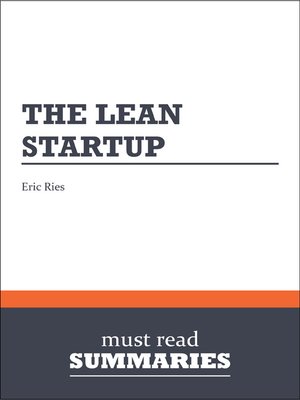

The author keeps saying – “old accounting methods are not applicable for startups because of uncertain environment” – yes, true – but then goes narrative description of what’s been in business books for decades. But when I finished I tried to recount what was it and again – second-hand is sold as high fashion. So, where is breakthrough? Bigger disappointment was “Innovative Accounting” – yeah, you see another popular label – “Innovation”. First, “Minimum Viable Product” – the concept of early introduction of a product for testing a concept is not new, it’s applicable for products with short development cycle only and very specific for few industries. The author introduce new concept with new name selling it as a breakthrough in the science of management, but when you complete a chapter you ask yourself, so what’s new there, why old practices are called differently from what I used to. But everybody got used to “Lean execution”, so my first reaction when I saw the title was – “wow, have I missed something, are there new scientific methods from Stanford I’m not aware of?” So, I bought it with high expectations of something new and then… Then there was complete disappointment. Leaders of all levels everywhere around the world know this word – LEAN. Ries provides a scientific approach to creating and managing successful startups in a age when companies need to innovate more than ever.įirst, why I bought the book – the author did a great job of promoting his book by using a word which is the most popular in modern business world.

Rather than wasting time creating elaborate business plans, The Lean Startup offers entrepreneurs - in companies of all sizes - a way to test their vision continuously, to adapt and adjust before it’s too late. It enables a company to shift directions with agility, altering plans inch by inch, minute by minute. Inspired by lessons from lean manufacturing, it relies on “validated learning”, rapid scientific experimentation, as well as a number of counter-intuitive practices that shorten product-development cycles, measure actual progress without resorting to vanity metrics, and learn what customers really want. The Lean Startup approach fosters companies that are both more capital efficient and that leverage human creativity more effectively. What they have in common is a mission to penetrate that fog of uncertainty to discover a successful path to a sustainable business.

This is just as true for one person in a garage or a group of seasoned professionals in a Fortune 500 boardroom.

The Lean Startup is a new approach being adopted across the globe, changing the way companies are built and new products are launched.Įric Ries defines a startup as an organization dedicated to creating something new under conditions of extreme uncertainty. But many of those failures are preventable.


 0 kommentar(er)
0 kommentar(er)
